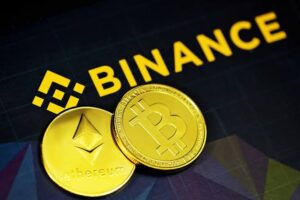The Federal High Court of Nigeria is set to hear a high-profile money laundering case against Binance, the world’s largest cryptocurrency exchange, and two of its top executives. The court proceedings are now scheduled to take place next week, an adjustment that brings the trial date forward by over a month from the original plan. This development follows a request from the defence lawyers for an earlier date, as confirmed by the prosecutor on Monday. Initially, the hearing was set for October 11, but it has now been rescheduled for September 2.
The case has drawn significant attention, particularly because it involves a substantial sum of over $35 million allegedly laundered. The accused parties include Binance and two of its executives: Tigan Gambaryan, a U.S. citizen serving as the head of financial crime compliance for Binance, and Nadeem Anjarwalla, the exchange’s regional manager for Africa, who holds dual British-Kenyan nationality. The charges not only focus on money laundering but also include serious allegations of tax evasion against Binance.
 Both Binance and Gambaryan have vehemently denied the allegations. However, the situation took a dramatic turn when Anjarwalla managed to evade detention and fled Nigeria before the trial could commence. On the other hand, Gambaryan has been in Nigerian custody since February, and his health has reportedly deteriorated significantly while in detention. His wife, Yuki Gambaryan, has expressed deep concern over his condition, making a heartfelt plea to the Nigerian government to dismiss the charges against her husband and secure his release on medical grounds. She has also sought assistance from the U.S. government to help in his release.
Both Binance and Gambaryan have vehemently denied the allegations. However, the situation took a dramatic turn when Anjarwalla managed to evade detention and fled Nigeria before the trial could commence. On the other hand, Gambaryan has been in Nigerian custody since February, and his health has reportedly deteriorated significantly while in detention. His wife, Yuki Gambaryan, has expressed deep concern over his condition, making a heartfelt plea to the Nigerian government to dismiss the charges against her husband and secure his release on medical grounds. She has also sought assistance from the U.S. government to help in his release.
The case has broader implications for Nigeria, which has blamed cryptocurrency platforms like Binance for contributing to the country’s ongoing currency crisis. As Nigeria faces chronic shortages of U.S. dollars, many have turned to cryptocurrency exchanges to trade Nigerian naira, which has plunged to historic lows. The Nigerian authorities argue that these exchanges are facilitating a black market for foreign currency, exacerbating the nation’s economic woes.
In response to the crackdown on crypto activities, Binance announced in March that it would halt all transactions and trading involving the naira. This decision came after increased scrutiny from Nigerian authorities who accused crypto exchanges of undermining the official foreign exchange market. The situation has escalated tensions between the Nigerian government and the cryptocurrency sector, with Binance caught at the center of this contentious issue.
The courtroom drama surrounding the case has been equally intense. During a hearing in July, Gambaryan, who was brought into the courtroom in a wheelchair, stood up slowly when called, revealing the severity of his health issues. Dressed in a black T-shirt and blue jeans, Gambaryan made his way to the dock, demonstrating the physical toll that his incarceration has taken.
The proceedings were momentarily delayed as the lead counsel for the Economic and Financial Crimes Commission (EFCC), Ekele Iheanacho, was not present. Ogechi Ujam, another lawyer for the EFCC, requested a brief adjournment, which was not opposed by the defence lawyers, Babatunde Fagbohunlu (SAN) representing Binance, and Mark Mordi, representing Gambaryan. Justice Emeka Nwite agreed to step down on the matter temporarily.
Justice Nwite had previously ordered the Nigerian Correctional Service (NCoS) to provide a medical certificate for Gambaryan, highlighting the court’s concern over his health. Despite this order, there have been delays in receiving the necessary medical reports, prompting Gambaryan’s lawyer, Mark Mordi, to request that the court summon the medical doctor from Kuje Correctional Centre to explain the failure to comply with the court’s order.
As the trial date approaches, the case continues to garner international attention, reflecting the growing scrutiny on cryptocurrency exchanges and their role in global finance. The outcome of this case could have far-reaching consequences, not only for Binance and its executives but also for the broader cryptocurrency industry, particularly in regions like Africa where digital currencies are increasingly popular. For Nigeria, this trial could serve as a critical moment in its efforts to regulate the use of cryptocurrencies and stabilize its financial system. The coming days will be crucial as all eyes turn to the Federal High Court for further developments in this unfolding saga.




